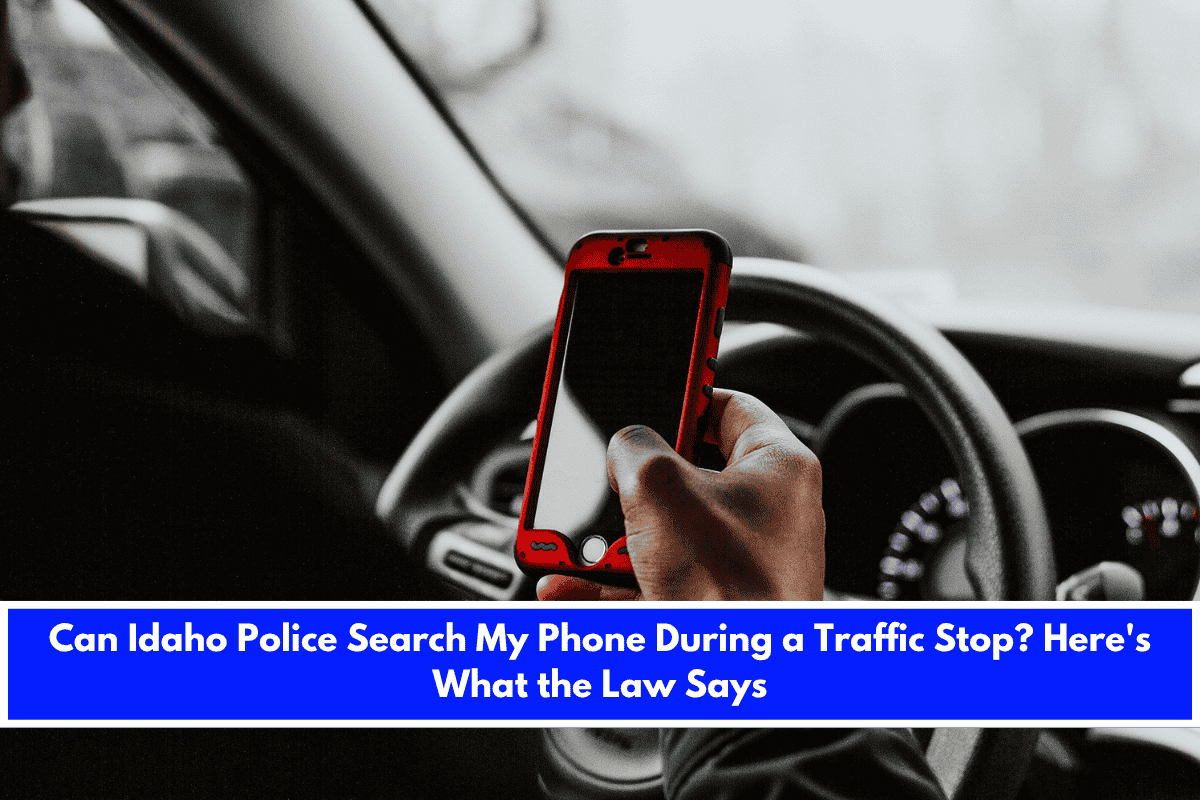Idaho police cannot search your phone during a traffic stop without a search warrant. The Fourth Amendment protects your digital privacy, and a 2014 U.S. Supreme Court decision (Riley v. California) established that law enforcement must obtain a warrant—specifically detailing what they are searching for—before accessing the contents of your mobile device.
Exceptions to the Warrant Requirement
There are only two primary exceptions where police can search your phone without a warrant:
- Consent: If you voluntarily give police permission to search your phone, they can legally do so. This consent must be clear and explicit. Once you consent, officers can access your phone’s contents.
- Exigent Circumstances: In rare cases, if police believe there is an immediate threat to public safety or a risk that evidence will be destroyed, they may conduct a warrantless search. These situations are uncommon and must be justified in court.
What Happens If Police Search Without a Warrant or Exception?
If an officer searches your phone without your consent, a warrant, or a valid emergency, any evidence obtained can be challenged in court. You can file a motion to suppress this evidence, and a judge may rule it inadmissible.
Your Rights During a Traffic Stop
- You do not have to hand over your phone if an officer asks for it during a traffic stop. You are only required to provide your driver’s license, registration, and proof of insurance.
- You can refuse consent to any search of your phone or vehicle. Politely state that you do not consent to a search if asked.
- Remain calm and respectful during the interaction, and if you believe your rights have been violated, address it later through legal channels.
Summary Table
| Scenario | Can Police Search Your Phone? |
|---|---|
| Without your consent or a warrant | No |
| With your explicit consent | Yes |
| With a search warrant | Yes |
| In exigent (emergency) circumstances | Possibly, but must justify in court |
Idaho police generally need a warrant or your consent to search your phone during a traffic stop. You have the right to refuse a search, and any unlawful search can be challenged in court.
Sources:
- https://law.justia.com/cases/idaho/supreme-court-criminal/2022/48593.html
- https://isc.idaho.gov/opinions/50427.pdf
- https://www.davidyannetti.com/articles/do-i-have-to-give-police-access-to-my-phone-during-a-traffic-stop/
- https://casetext.com/case/state-v-garitone











Leave a Reply